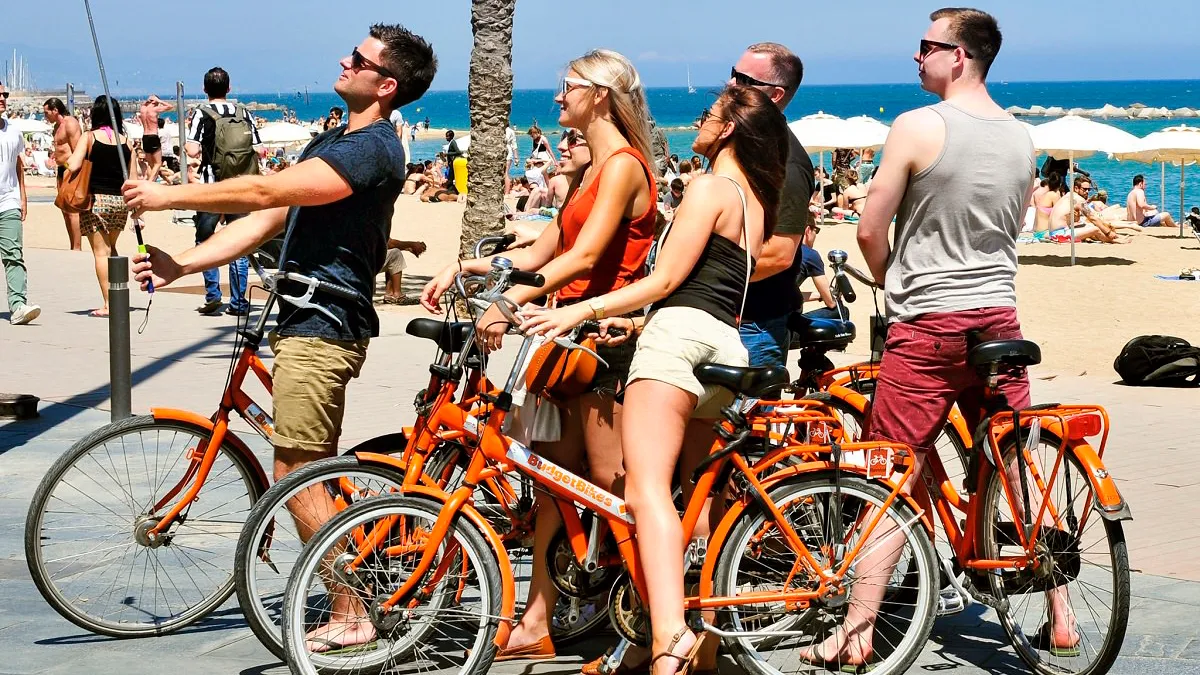Table of Contents
Well, bugger me dead — The Guardian has finally found a nanny state measure it doesn’t like. Surprise, surprise, it’s about trying to hold road maggots to account.
That’s right, the very people who want the rest of us to be taxed for breathing, and tracked on everything from our “carbon footprint”, to “vaccine status” and what we say online, is throwing up its hands in horror at the idea of registering cyclists.
The transport secretary floated the idea of compulsory insurance for all bikes on the road and number plates for cyclists in an interview with the Daily Mail that made the front page today: “How are you going to recognise the cyclist, do you need registration plates?” he asked.
The Grauniad almost admits that there’s a sound logic to the idea.
The argument for registering bikes can seem initially tempting. Cyclists, like cars, are road users, they can and sometimes do break laws, and they can also cause serious harm to others. Why should they be exempt from identification and enforcement?
“Sometimes” break laws? Cyclist love to tout a Danish study that, they say, shows “only 5% of cyclists break road laws”. What they leave out is, that’s only when there are cycleways. Otherwise, law-breaking triples. On the other hand, a US study found that cyclists break road laws as routinely as motorists.
A notorious example of outright flouting of the law is Melbourne’s weekly “Hell Ride”, where a pack of hundreds of cyclists hurtle along the city’s bayside roads, flying through red lights — and, in 2006, an elderly pedestrian, killing him.
So, why shouldn’t they be forced to not just contribute to road funding, as well as being held to account for breaking road laws?
First, the logistical hurdles of registering and identifying cyclists: a number plate needs to be big enough to be legible, which is tricky on its own. It would also only identify the bike itself, not the person on it. Some advocates have mooted the idea of rider-specific numbered tabards. But again, something big enough to be seen would be hugely impractical – sweaty to wear in summer, and impossible to get over a coat in the wet or cold.
That last is a blatant lie. Cyclists routinely wear numbered tabards in races. They also sport huge logos on their ghastly lycra gear — companies wouldn’t be paying for that if no-one could see it easily.
Another option would be numbered helmets.
And what about children? No one has seriously suggested that a 12-year-old cycling to school needs to face such administrative hurdles. But if the under-18s are exempt, would 16- and 17-year-olds need to start carrying ID to prove their age?
You mean, like a learner’s permit?
Identifying road users does not eliminate danger. The UK has an estimated one million uninsured drivers, according to the Motor Insurers’ Bureau, and about 70 people a day are either killed on the roads or experience potentially life-changing injuries.
What are they trying to argue, here? That unlicensed road users are a danger? Which kind of proves the case they’re trying to argue against.
Then we get to this hilarious own goal.
All you would get from these draconian measures is, most likely, fewer cyclists. Mandatory helmet laws in places such as Australia – a far less onerous administrative barrier – have been shown to suppress cyclist numbers.
The Guardian
That’s the best argument for registering road maggots that they’ve made yet.








